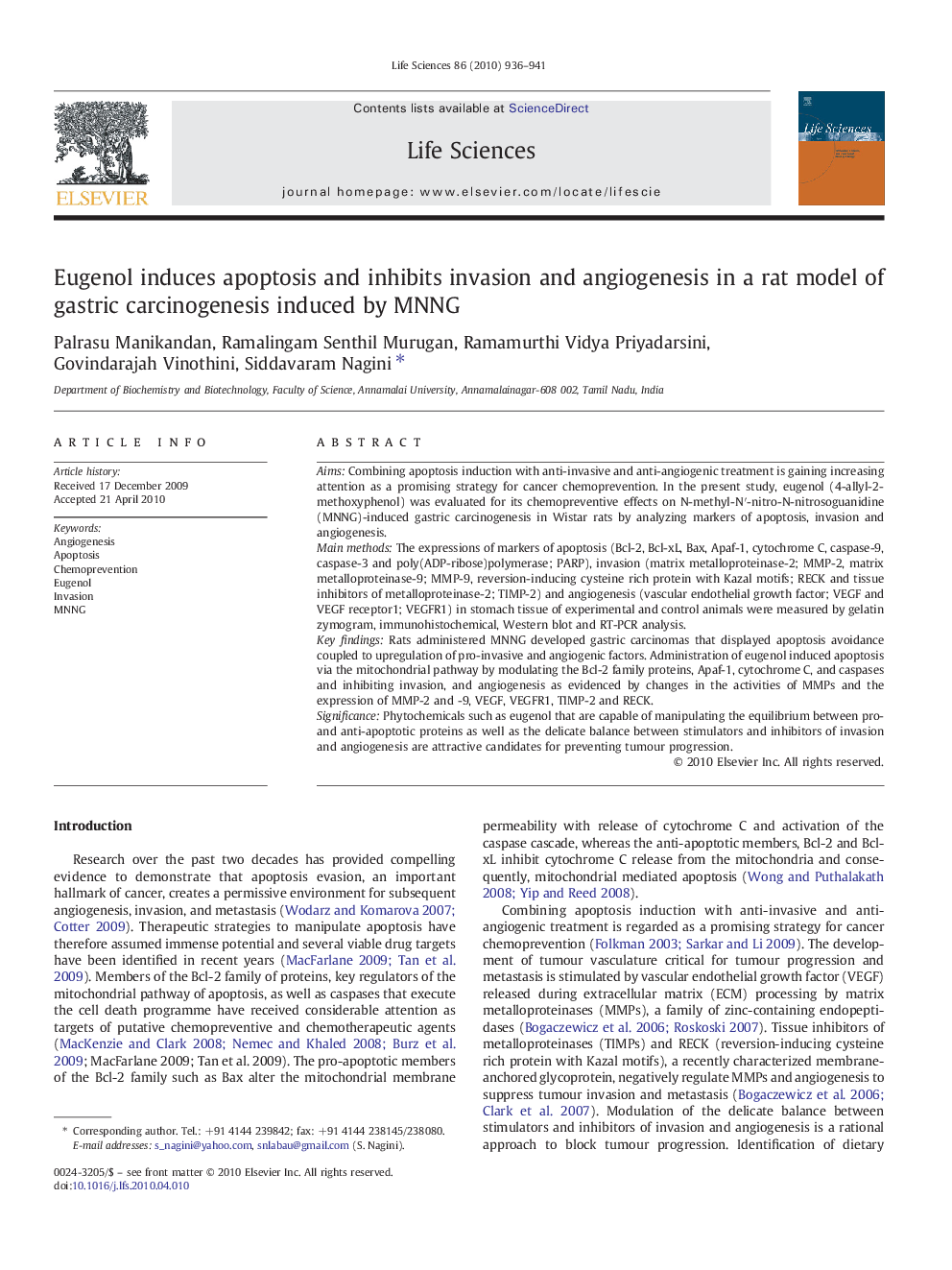| Article ID | Journal | Published Year | Pages | File Type |
|---|---|---|---|---|
| 2552691 | Life Sciences | 2010 | 6 Pages |
AimsCombining apoptosis induction with anti-invasive and anti-angiogenic treatment is gaining increasing attention as a promising strategy for cancer chemoprevention. In the present study, eugenol (4-allyl-2-methoxyphenol) was evaluated for its chemopreventive effects on N-methyl-N′-nitro-N-nitrosoguanidine (MNNG)-induced gastric carcinogenesis in Wistar rats by analyzing markers of apoptosis, invasion and angiogenesis.Main methodsThe expressions of markers of apoptosis (Bcl-2, Bcl-xL, Bax, Apaf-1, cytochrome C, caspase-9, caspase-3 and poly(ADP-ribose)polymerase; PARP), invasion (matrix metalloproteinase-2; MMP-2, matrix metalloproteinase-9; MMP-9, reversion-inducing cysteine rich protein with Kazal motifs; RECK and tissue inhibitors of metalloproteinase-2; TIMP-2) and angiogenesis (vascular endothelial growth factor; VEGF and VEGF receptor1; VEGFR1) in stomach tissue of experimental and control animals were measured by gelatin zymogram, immunohistochemical, Western blot and RT-PCR analysis.Key findingsRats administered MNNG developed gastric carcinomas that displayed apoptosis avoidance coupled to upregulation of pro-invasive and angiogenic factors. Administration of eugenol induced apoptosis via the mitochondrial pathway by modulating the Bcl-2 family proteins, Apaf-1, cytochrome C, and caspases and inhibiting invasion, and angiogenesis as evidenced by changes in the activities of MMPs and the expression of MMP-2 and -9, VEGF, VEGFR1, TIMP-2 and RECK.SignificancePhytochemicals such as eugenol that are capable of manipulating the equilibrium between pro- and anti-apoptotic proteins as well as the delicate balance between stimulators and inhibitors of invasion and angiogenesis are attractive candidates for preventing tumour progression.
